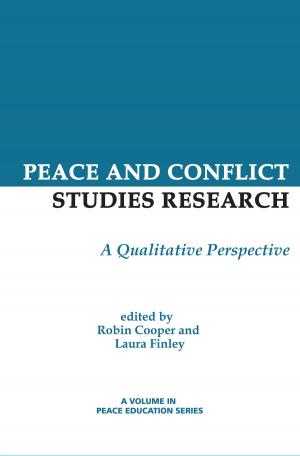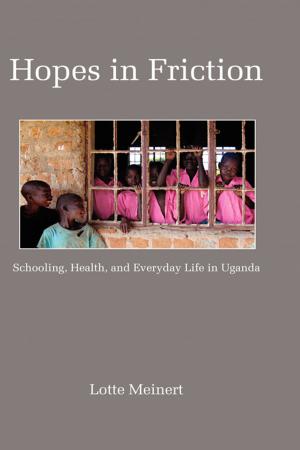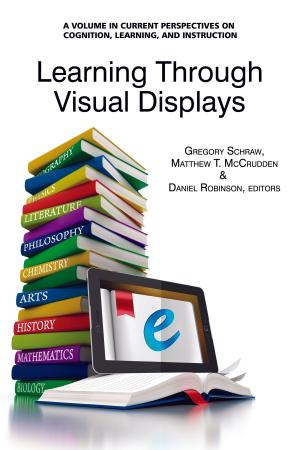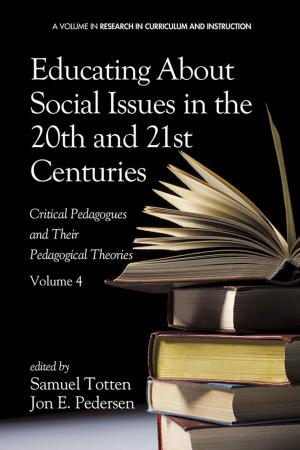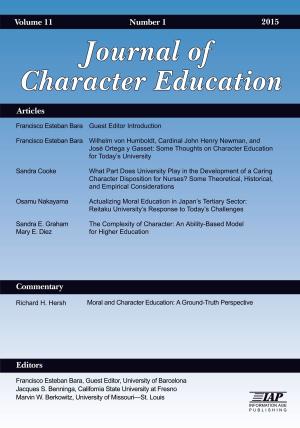Pedagogies of Deveiling
Muslim Girls and the Hijab Discourse
Nonfiction, Social & Cultural Studies, Social Science, Cultural Studies, Ethnic Studies, Gender Studies, Women&, Reference & Language, Education & Teaching| Author: | Manal Hamzeh | ISBN: | 9781617357244 |
| Publisher: | Information Age Publishing | Publication: | June 1, 2012 |
| Imprint: | Information Age Publishing | Language: | English |
| Author: | Manal Hamzeh |
| ISBN: | 9781617357244 |
| Publisher: | Information Age Publishing |
| Publication: | June 1, 2012 |
| Imprint: | Information Age Publishing |
| Language: | English |
Manal Hamzeh’s book, Pedagogies of deveiling: muslim girls & the hijab discourse, presents an exploration of a gendering discourse, the hijab (veil) discourse, and how it was negotiated by four girls who selfidentified as muslims. Pedagogies of deveiling emerged over a period of three years writing up a 14 months long study in which Hamzeh collaborated with four muslim girls in two US southwestern border towns between October 2005 and December 2006. This book stems from the stories of these four muslim girls weaved with Hamzeh’s stories and perspectives as arabyyahmuslimah, the main researcher in the study—an “insider/inbetweener” educator/researcher who is literate in the cultural/linguistic/historical nuances critical in working with Muslim girls and their communities. Pedagogies of deveiling offers an alternative approach to research and pedagogy with muslim girls in which the takenforgranted hijabs in the sacred text and their inscriptions on the bodies of these girls are deveiled, or problematized, rethought, questioned, and countered. As such, what this book offers is first critical to muslim girls themselves because it shatters the phobia and the impossibility of reinterpreting of some canonical Islamic sacred texts in relation to the hijabs and gender. Finally, in this book, Dr. Manal Hamzeh offers a vision for how the sacred text reinterpreted by critical feminist epistemologies may represent a curriculum that is open to critique and holds potential for change towards justice. With this, Dr. Hamzeh calls upon researchers and educators to open spaces for creativity and collaborate with muslim girls in order to, 1) navigate the multiplicity and fluidity of their subjectivities implicated by intersecting discourses in their lives, and 2) honor their choices while supporting them to negotiate the thoughtof as fixed Islamic values that may jeopardize their chances of any learning opportunity. This a call to work with muslim girls as theorizers of possibilities and as the main agents of change in their own lives. This is a call to open with muslim girls opportunities to practice their agency in unpacking and challenging normative discourses in their lives, not exclusive to the hijab discourse This is a call for opening spaces of struggle and uprising and cultivating moments of meaning and shifts of consciousness.
Manal Hamzeh’s book, Pedagogies of deveiling: muslim girls & the hijab discourse, presents an exploration of a gendering discourse, the hijab (veil) discourse, and how it was negotiated by four girls who selfidentified as muslims. Pedagogies of deveiling emerged over a period of three years writing up a 14 months long study in which Hamzeh collaborated with four muslim girls in two US southwestern border towns between October 2005 and December 2006. This book stems from the stories of these four muslim girls weaved with Hamzeh’s stories and perspectives as arabyyahmuslimah, the main researcher in the study—an “insider/inbetweener” educator/researcher who is literate in the cultural/linguistic/historical nuances critical in working with Muslim girls and their communities. Pedagogies of deveiling offers an alternative approach to research and pedagogy with muslim girls in which the takenforgranted hijabs in the sacred text and their inscriptions on the bodies of these girls are deveiled, or problematized, rethought, questioned, and countered. As such, what this book offers is first critical to muslim girls themselves because it shatters the phobia and the impossibility of reinterpreting of some canonical Islamic sacred texts in relation to the hijabs and gender. Finally, in this book, Dr. Manal Hamzeh offers a vision for how the sacred text reinterpreted by critical feminist epistemologies may represent a curriculum that is open to critique and holds potential for change towards justice. With this, Dr. Hamzeh calls upon researchers and educators to open spaces for creativity and collaborate with muslim girls in order to, 1) navigate the multiplicity and fluidity of their subjectivities implicated by intersecting discourses in their lives, and 2) honor their choices while supporting them to negotiate the thoughtof as fixed Islamic values that may jeopardize their chances of any learning opportunity. This a call to work with muslim girls as theorizers of possibilities and as the main agents of change in their own lives. This is a call to open with muslim girls opportunities to practice their agency in unpacking and challenging normative discourses in their lives, not exclusive to the hijab discourse This is a call for opening spaces of struggle and uprising and cultivating moments of meaning and shifts of consciousness.

